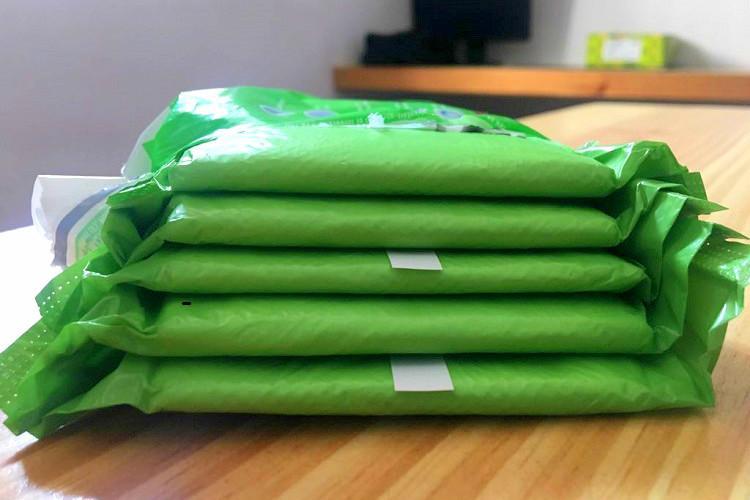From the onset of first menses till menopause, a woman has to deal with a monthly flow of blood, and how to maintain menstrual hygiene using sanitary pads.
Now evidence suggests menstrual pads, especially those that contain plastic, are contributing to environmental pollution.
It is called “sanitary footprint”, and the campaign is heating up for innovations to “reduce, reuse and recycle”. A single woman uses between 11,000 and 16,000 disposable pads or tampons all through her menstrual life.
Nearly nine in 10 disposable sanitary pads are made from plastic, making it harder for them to degrade completely, says Adiza Ujo, convener of Steward of the Environment for Sustainable Change Initiative.
“One pack of sanitary pad is said to contain the equivalent of four shopping bags and when that number is multiplied by nearly half of the population, it equals a very alarming amount of sanitary waste ending up in our dumpsite, landfills, sewers and oceans.”
“Our sanitary “footprint” will outlive our own lives, and remain for the generations to come. Most sanitary products also contain polyethylene, dioxin, chlorine and rayon that leach into and pollute our underground water and pollute the air when openly burnt.
“However this is not the final story, from the landfills and the oceans, the pads make a return in form of micro plastics and chemicals. In this way, hidden from sight, we find them in our homes, food, air and water. At the end of the day, the final destination of disposable pads is in our own bodies,”Ujo said.
“We are silent victims, and we are all responsible,” said Kate Ogbonna, deputy director for Environmental Health at the Abuja Environmental Protection Board.
Among innovations to reduce ‘sanitary footprint’, proponents have listed use of re-usable cotton fabric pads, pads made from water hyacinth which break down completely in a short time, sanitary cups that can be re-used.
But the downside is to make it work for women and the environment.
“Sanitary waste is not something we should be shy about. We should know the impact on the environment. It is huge on the environment,” said Ujo.
“And because it is plastic, mind you this plastic is not going anywhere. When we die and our children die, it will still be there. It will only break into smaller pieces but it will still be here. And right now it is going into our water bodies. Fish are eating it; goats and cows are going to eat from the dumpsites, and we are eating the goats, and it is all coming back into our bodies.”

 Join Daily Trust WhatsApp Community For Quick Access To News and Happenings Around You.
Join Daily Trust WhatsApp Community For Quick Access To News and Happenings Around You.


